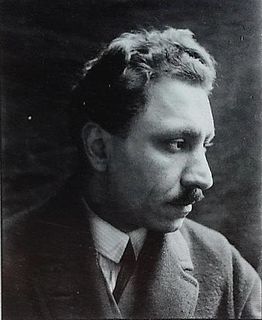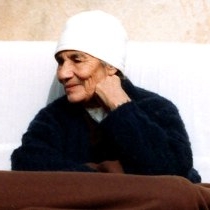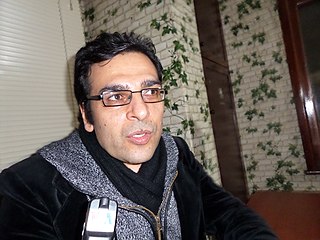 W
WIbrahim Ahmad was a Kurdish writer, novelist, judge and translator.
 W
WDlawer Ala'Aldeen دلاوەر عبدالعزيز علاءالدين, is the Founding President of the Middle East Research Institute, a policy-research institute, based in Arbil, Kurdistan Region of Iraq. He is a former Minister of Higher Education and Scientific Research in the Kurdistan Regional Government (2009-2012) and former professor of Medicine at the University of Nottingham in the UK. His current focus is on policy research in the fields of good governance, rule of law, national security, governance reform and promotion of human rights.
 W
WArjen Arî was a contemporary Kurdish poet and writer.
 W
WShamil Asgarov or Shamil Askerov was a Kurdish scholar, poet, and researcher on the history of the Kurds in Azerbaijan. He was the leader of Kalbajar's large Kurdish community, founder and former director of the Kurdish Museum in Kelbajar, and editor of the Kurdish newspaper Denge Kurd published from 1991 to 2004 in Baku, Azerbaijan. Shamil Asgarov translated the classic Kurdish love story Mem and Zin into Azerbaijani and was the author of 17 books among them one, Ferhenge, the Kurdish-Azerbaijani dictionary, was published in 1999 by the support of the Soros Foundation.
 W
WMahmud Bayazidi, was a Kurdish philosopher and polymath from Bayazid in the Ottoman Empire.
 W
WCeladet Bedir Khan or Celadet Bedirkhan, also known as Mîr Celadet, was a Kurdish diplomat, writer, linguist, journalist and political activist. He held a master's degree in law from Istanbul University, completed his studies in Munich, and spoke several languages including Arabic, Kurdish, Russian, German, Turkish, Persian and French. He left Turkey in 1923 when the Kemalists declared a new republic. In 1927, at a Kurdish conference held in Beirut, a committee was formed, the Xoybûn. He is known for having been the first modern linguist to compile and organise the grammar of the modern form of the Northern Kurdish language, Kurmanji, and having designed the Latin-based Hawar alphabet, which is now the formal alphabet of Kurmanji and is also frequently used for the other dialects of the Kurdish Language, having replaced the Arabic-based, Cyrillic-based, Persian-based and Armenian-based alphabets formerly used for Kurmanji.
 W
WKamuran Ali Bedirxan was a Kurdish politician, lawyer and writer.
 W
WFirat Cewerî is a Kurdish writer, translator and journalist. He was born in the town of Derik near Mardin in south-eastern Turkey. In the 1980s, he emigrated to Sweden, where he lives now.
 W
WCigerxwîn or Cegerxwîn was a renowned Kurdish author and poet. He is known to be one of the most influential Kurdish writers and poets in the Kurdistan region of the Middle East, and his work has been renewed for the creation of hundreds of songs and played a crucial role in the preservation of Kurdish cultural heritage.
 W
WMariwan Halabjaee or Mariwan Halabjayi is an Iraqi Kurdish writer, public speaker, and human rights activist. He is the author of sixteen books and producer of over ninety documentaries, covering topics on theology, psychology, and human rights. He is the author of the book Sex, Sharia and Women in the History of Islam. The book gained international fame when published in 2005, and has since been reprinted eleven times and translated into Arabic, Persian, and Pashto for millions of readers. It is about how Islam and Sharia are allegedly used to oppress Muslim women. "I wanted to prove how oppressed women are in Islam and that they have no rights," said Halabjaee. Halabjaee asserted the book was, "based on Islamic sources such as the Holy Quran, Muslim and Bukhari books and many more." Due to his controversial work, he is often referred to as "the Salman Rushdie of Iraqi Kurdistan".
 W
WAmir Hassanpour,, was a prominent Iranian-Kurdish scholar and researcher. He was born in Mahabad, in north-western Iran. He received his B.A. degree in English language in 1964 from University of Tehran. He taught in the secondary schools of Mahabad in the period of 1965-66.
 W
WSuwara Ilkhanizada (1937–1976) was a Kurdish poet and writer. He was born in the village of Turjan near Saqqez in the north-west of Iran. He went to local school and continued his studies in Tabriz.
 W
WHewa Salam Khalid is a young Kurdish scholar, PhD in Kurdish language and culture, and he is a lecturer at Koya University - Kurdistan Region of Iraq. He also left his previous PhD at EMU in Turkish Cyprus because he was forced to not mention the name of Kurdistan in his thesis. Currently, he is also a CEO of Kurdish Language Courses.
 W
WNado Khdoi Makhmudov (1907–1990) was a Soviet Armenian writer and public figure of Kurdish ethnicity.
 W
WNajmadeen Mala was a Kurdish writer, journalist and teacher. Najmadeen was the son of Mullah Ghafur Mullah Ali. He worked in Ranya but moved to Halab in Syria.
 W
WJamal Nebez was a Kurdish linguist, mathematician, politician, author, translator and writer. He studied Islamic law, philosophy, theology, physics and mathematics at the University of Baghdad in the 1950s. In 1956, he prepared a stenciled script on algebra and in 1960, succeeded in publishing the first physics book in Kurdish, including a rich glossary of Kurdish terms pertaining to physics and mathematics. He translated several literary works, including works of Nikolai Gogol and William Shakespeare into Kurdish. He also wrote and published several books on a variety of topics. Most of the books are mainly about topics related to Kurds.
 W
WMalak Jân Nemati was born in 1906 in Jeyhounabad, a village in Iranian Kurdistan. Also known as Sheikh Jâni and Saint Jani, she was a charismatic figure and a mystical writer and poet in Kurdish and Persian language. She was the daughter of Hajj Nematollah and the sister of Ostad Elahi. There are few written sources about her life. Some elements can be found in the words of her brother Ostad Elahi whom she was very close to. A biography in French was published on the occasion of the centennial of her birth, including the translation of some of her poems and sayings.
 W
WTawfeq Mahmoud Hamza or Piramerd was a Kurdish poet, writer, novelist and journalist. He was born in the Goyje neighborhood of Sulaimaniya city in Iraq. In 1926, he became the editor of the Kurdish newspaper Jîyan. He also established a private Kurdish school in Kurdistan, called Partukxane i Zanistî.
 W
WFarhad Pirbal is a Kurdish writer, philosopher, singer, poet, painter and critic. He was born in the city of Erbil (Hawler) in Southern Kurdistan. He studied Kurdish language and literature in the University of Salahadin in Hewlêr. In 1986, he left Kurdistan to France. He continued his studies in University of Sorbonne in the field of Kurdish literature. After going back to Southern Kurdistan, in 1994, he established the Sharafkhan Badlisi cultural center.
 W
WTosinê Reşîd , , is a contemporary Kurdish Yazidi writer, poet and playwright. He was born in the village of Koorakand (Kûrekend) in Armenia. He studied physics and chemistry at the Pedagogical Institute and graduated in 1964. After a few years of working as a teacher, he continued his studies in 1970 and received his PhD in chemistry in 1975. In the same year, he published his first book entitled Kilamê Rê. During the 1970s, around 200 of his articles were used under the name of Kurdish Encyclopaedia in cultural programs of Radio Yerevan. He published his first play based on the well known Kurdish folkloric epic Siyabend û Xecê in 1984. In 1993, he left Armenia and settled in Melbourne, Australia.
 W
WFerhad Shakely is a prominent Kurdish writer, poet and researcher. He is one of the founders of modern Kurdish poetry in the post-Goran period. He was born in 1951 in the province of Kirkuk in Iraq. He began publishing poetry in 1968. In the early 1970s he studied in the Kurdish department of the Baghdad University. He joined the Kurdish national movement under the leadership of Mustafa Barzany in 1974 and went to Syria in 1975. He lived in Germany from Autumn 1977 to Summer 1978. Finally he settled in Sweden in the same year. In 1981, after studying for one year at the University of Stockholm, he went to Uppsala University where he studied Iranian languages. He is now teaching in the same university. He published a Swedish-Kurdish Journal between 1985 and 1989 called Svensk-Kurdisk Journal. Moreover, he published a literary Kurdish magazine, Mamosta-y Kurd between 1985 and 1996. In 1992, he published Kurdish nationalism in Mam and Zin of Ahmad Khani, a literary history that was translated into Swedish, Turkish and Arabic. Many of his poems have been translated into Persian, Arabic, Norwegian, Swedish, English, French, Italian, Icelandic and Danish.
 W
WArab Shamilov was a Yazidi Kurdish novelist who lived in the Soviet Union. He was born in the city of Kars in present-day north-eastern Turkey.
 W
WAbdurrahman Sharafkandi or Hazhar or Hajar,, was a renowned Kurdish writer, poet, lexicographer, linguist, and translator, from Iran. Some sources of Sharafkandi birthplace have been mentioned in the village of Sharafkand, which is a district of Bukan.
 W
WSamand Aliyevich Siabandov was a Soviet writer, military officer and politician of Kurdish–Yazidi origin who was awarded the title Hero of the Soviet Union during the Soviet war against Nazi Germany.
 W
WKamal Sido Kurdaxi is a Kurdish interpreter, translator, and author of several publications in Kurdish, Arabic, Russian, German, and Turkish.
 W
WMehmed Uzun was a contemporary Zaza-Kurdish writer and novelist. He was born in Siverek, Şanlıurfa Province, Turkey.
 W
WTaufiq Wahby (1891–1984) was a prominent Kurdish writer, linguist and politician. He first served in the Ottoman army as a colonel, but after the creation of Iraq by the British in 1920, he became an influential officer in the new Iraqi army. He also served eight terms in ministerial posts in the Iraqi government. He was instrumental in the design of a new Kurdish alphabet based on modified Arabic letters. Taufiq Wahbi also engaged in research concerning Yazidis and their religion.
 W
WAhmad Khani, also spelled Ahmad-i Khani, was a Kurdish writer, poet, astronomer and philosopher. He was born amongst the Khani's tribe in Hakkari province in present-day Turkey. He moved to Bayezid in Ritkan province and settled there. Later he started with teaching Kurdish (Kurmanji) at basic level. Khani was fluent in Kurdish, Arabic and Persian. He wrote his Arabic-Kurdish dictionary "Nûbihara Biçûkan" in 1683 to help children with their learning process.
 W
WHelîm Yûsiv is a Syrian Kurdish writer and lawyer. He studied laws at the University of Aleppo and has published in Lebanon, Turkey and Germany. He writes in both Kurdish and Arabic languages.